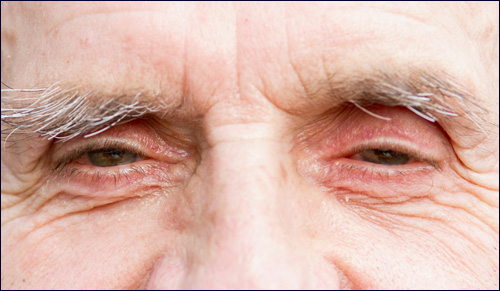 An Open Letter to University Presidents
An Open Letter to University Presidents


5 min read
Quality is more important than its quantity.
What do you say to somebody who is celebrating his 120th birthday?
According to the old Jewish joke, you tell him “have a nice day.”
That’s because most of us are familiar with the age-old tradition that our lifespan is limited to a 120 years. That’s how long Moses lived on earth, and since there has never been another one like him it would hardly be fitting for anyone else to exceed the years granted to him.
Medical advances have been extending old age far beyond what only a century ago would’ve been considered reasonable. People are living much longer and octogenarians are quite common, nonagenarians no longer surprising, and centenarians, while fussed over and celebrated, aren’t considered exceptions as much as harbingers of humankind’s future.
So when we prayed on the High Holy Days for chayim aruchim – length of days – we didn’t think it was unrealistic to actually hope for the proverbial 120.
Scientists have recently confirmed that there is far more truth in the ancient Jewish adage than we might have realized. In the respected journal Nature, the most prominent experts on aging concluded that there is a natural barrier to the human life span. Jan Vijg at the Albert Einstein College of Medicine, one of the leading figures in the field, published the pessimistic prediction that “It seems highly likely that we have reached our ceiling. From now on, this is it, humans will never get older than 115.”
S. Jay Olshansky, a professor of public health at the University of Illinois at Chicago, came to a similar conclusion more than two decades ago. Obviously, none of these scientific assumptions had anything to do with our reluctance to surpass the lifespan of Moses, the one person in history praised in the Torah as having conversed with God “face to face.” Yet here is but another example of tradition and science meeting – for totally different reasons – to come to a similar conclusion.
Aging, in the words of Dr. Vjig, is the accumulation of damage to DNA and other molecules. We have learned how to slow the process by repairing some of the damage but it is simply too much to fix. “At some point everything goes wrong, and you collapse.” To put it somewhat differently, after eating from the Tree of Knowledge in the Garden of Eden, God made the Tree of Life off-limits, preventing us from achieving earthly immortality.
What I find profoundly moving from this new scientific emphasis on the biological limits to our longevity is the theological implication. Dr. Vjig concludes from his studies that in light of our recognition that we may well have reached the ultimate in our ability to extend longevity, we should change our focus from length of life to quality of life. Our efforts should no longer be directed towards the unattainable goal of living more years but rather the very much achievable and more desirable objective of living better years.
It is no coincidence that on the High Holy Days, as we stand in judgment before the Almighty and are aware that our lives hang in the balance, we do not simply ask for life. We pray for chayim tovim - we beseech God for a good life, life with meaning, life with purpose, life in good health, life with all of our faculties and the ability to express and to enjoy the love of family and friends.
More, it is the very awareness of our mortality which makes us conscious of the need to achieve as much as we can in the precious years granted to us. Life is fleeting; therefore we must grab every moment to ensure that our deeds leave our descendants with a precious legacy. Life is a book with a final chapter which cannot be avoided so it is up to us to make it a text worth reading and emulating.
Life’s meaning is not its length but its quality.
The High Holy Days are followed by the holiday of Sukkot. The fragile sukkah, “a temporary dwelling” in Talmudic terms, reminds us of the transient nature of our existence on earth. We are here but for a relatively short period of time, be it the biblical threescore and ten or the hoped-for 120. Life’s meaning is not its length but its quality. The sukkah asks us to leave the magnificence of our homes and the beauty of our mansions to reflect on the impermanence of earthly possessions and the fact that the true meaning of our lives is the quality of our relationships with family and friends.
A wealthy American tourist once came to visit the saintly Rabbi the Chafetz Chaim to ask for a blessing. He was astounded by the poverty and the paucity of material possessions in the rabbi’s home. Unable to restrain himself, seeing only a very small table and two chairs, he asked, “But Rabbi where is your furniture?”
The Rabbi answered with a question: “Allow me also to ask, where is your furniture?”
The visitor responded, “My furniture? But I am traveling and I’m only here for short while.”
To which the Rabbi answered, “And the very same is true for me as well. I too am just travelling through and here for a short while, just as all of us are only visitors here on earth. So I choose to concentrate only on the things that are truly important.”
Perhaps this is why Sukkot comes right after the holidays on which we pray for long life. No matter how long we have, we need to recognize longevity is limited. Our lives are a “temporary hut.” That is why we need to make its quality more important than its quantity – hopefully to 115, if not 120.
